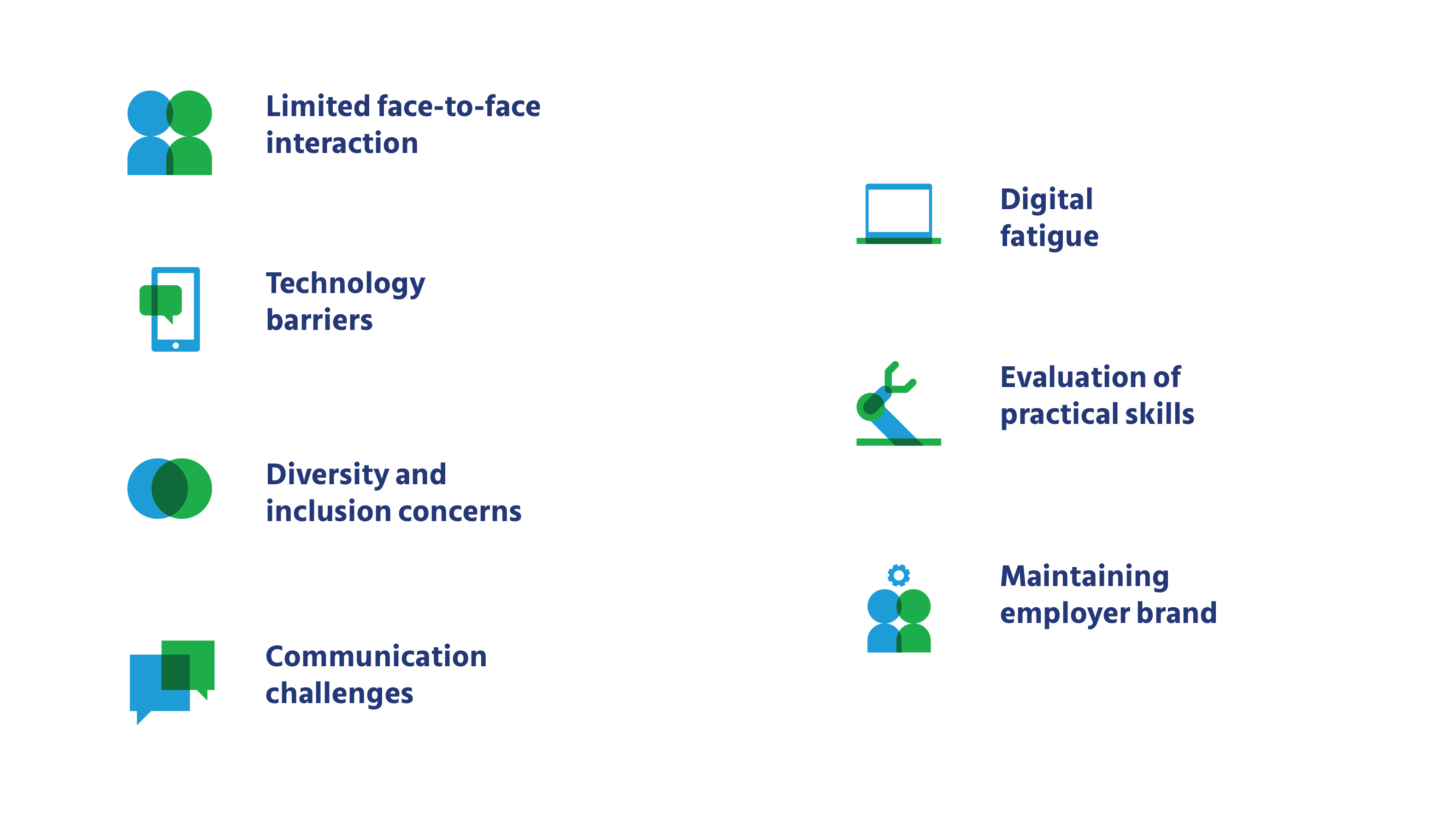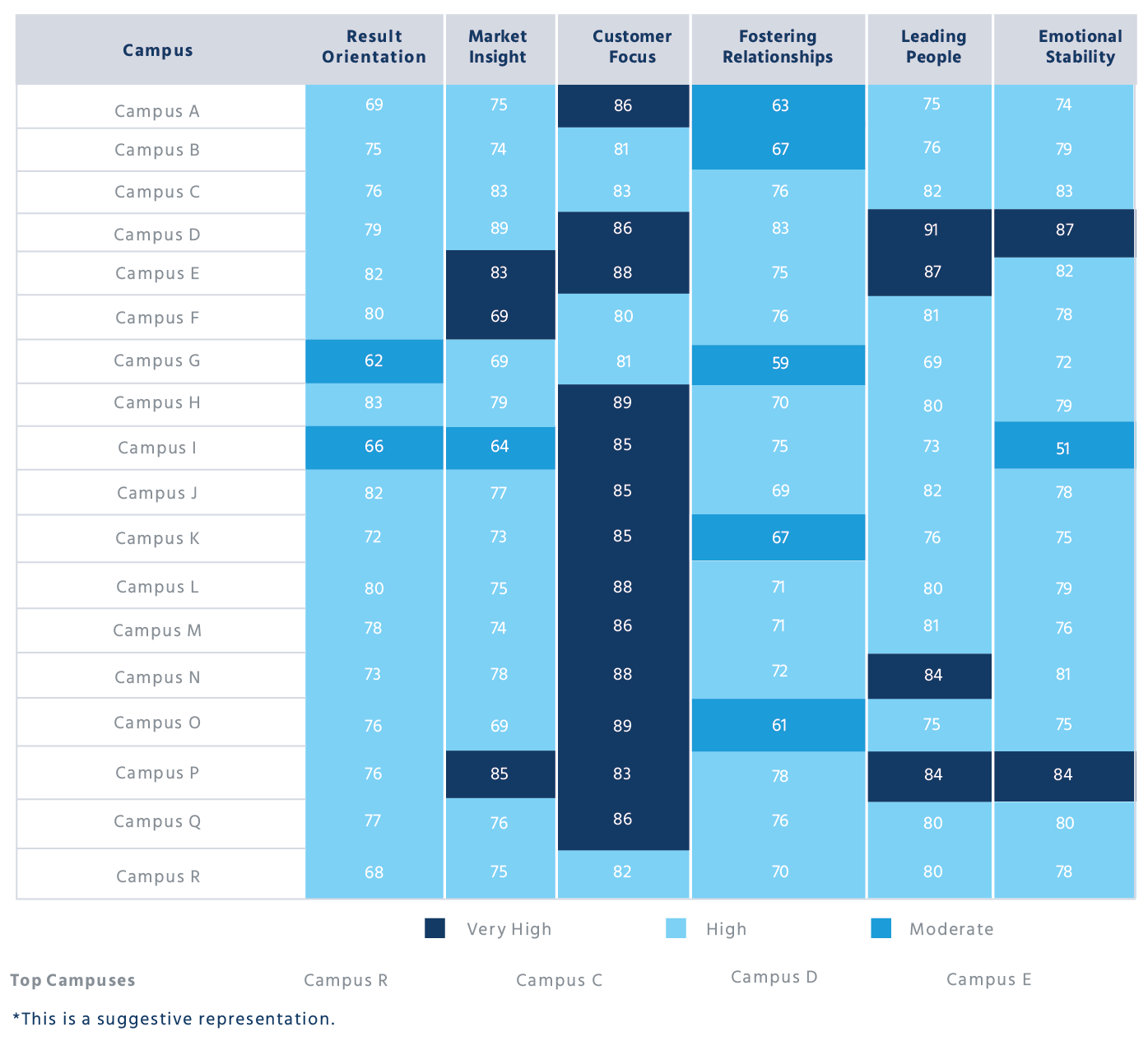Effective English communication is one of the most critical skills. Communication is an essential consideration for most roles and organizations. However, only some companies assess candidates’ verbal English skills, except perhaps in the interviews.
However, with increasingly global roles, spoken English must be measured using the latest technology, i.e., language proficiency evaluators. This allows for conducting evaluations at scale. An English language evaluator auto-evaluates the results. The review can be sent to multiple students simultaneously, and the results can be fed into the student’s final scores. Language proficiency evaluators combine assessments for pronunciation, fluency, listening and comprehension to assess all communication elements. Depending on the role’s requirements, they highlight a candidate’s trainable and non-trainable aspects.
Final selection interviews
While organizations often prefer to hold an in-person interview round, adopting a virtual campus hiring strategy means not stepping on the campus while ensuring better results and ROI.
Numerous video interviewing platforms available on the market, like Google, Skype, Zoom, etc., can be used for virtual interviews. But the right interview platform offers power-packed features, such as setting a path for the interview process by defining key competencies, the option to choose from a library of sample questions to evaluate specific skills, rating the candidates, and ultimately making data-driven decisions by assessing candidates’ data from multiple interviews and screening modes.
Competency-based interviews are consistent, structured and unbiased. They provide a platform to list the various competencies and related questions based on the job role and allow interviewers to score on the same platform.









 Behavioral Competencies
Behavioral Competencies Cognitive Competencies
Cognitive Competencies Coding Competencies
Coding Competencies Domain Competencies
Domain Competencies






































Would you like to comment?